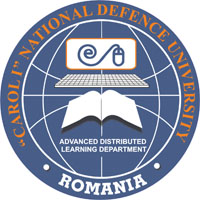ATTITUDES OF TEACHERS TO THE APPLICATION OF COMPUTERS IN PRESCHOOLS
ATTITUDES OF TEACHERS TO THE APPLICATION OF COMPUTERS IN PRESCHOOLS
Author(s): Anka Mihajlov PROKOPOVIĆ, Dragana PavlovićSubject(s): Education
Published by: Carol I National Defence University Publishing House
Keywords: preschool; computers; education; teachers; competences
Summary/Abstract: The impact of the new technologies on the field of education has noticeably been growing over the last few decades. Many research studies have been conducted in the world examining their effect on education at all educational levels, especially at the children's early age. The aim of this research is to examine the attitudes of teachers to the role of computers in strengthening the competences of preschool children for entering the next level of education in Serbia. The starting hypothesis is that teachers in their work value the use of educational computer games in order for children to acquire new knowledge strengthen problem solving skills, develop their creativity. Our starting position is the standpoint that there is a positive correlation between attitudes and independent variables: the length of work experience and previous computer education. The results show that teachers have a positive attitude to the application of computers in preschools; they are motivated to work with educational computer games and find that computer may be of significant benefit for work with children, but not to the great extent. The survey also shows that the length of work experience and previous computer education, as well as attending technical training courses are positively correlated with the application of computers in schools. The study concludes that modern technology is still not widely applied in preschools, primarily due to insufficient funds and unsatisfactory IT skills of teachers, which indicates the need for a systemic solution to this problem. Modernization and introduction of computers in preschools will not bring satisfactory results without appropriate education and training of teachers in order for them to acquire new skills and competences.
Journal: Conference proceedings of »eLearning and Software for Education« (eLSE)
- Issue Year: 11/2015
- Issue No: 02
- Page Range: 277-283
- Page Count: 7

